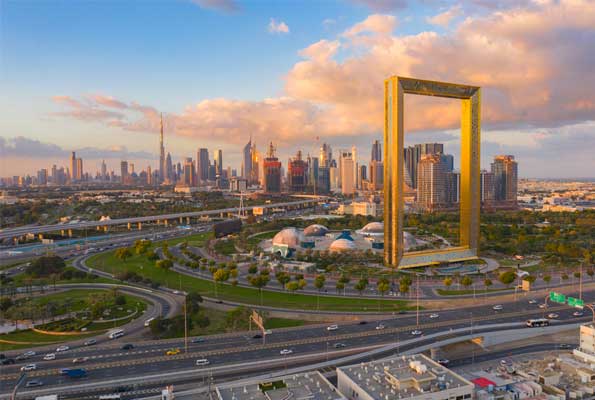The Dubai Economic Plan (D33), which aspires to place Dubai among the top three global cities and treble its economy by 2033, was discussed during the meeting of the Dubai Free Zones Council (DFZC), presided over by H.H. Sheikh Ahmed bin Saeed Al Maktoum, Chairman of the Council.
The Council discussed its plan of action in light of the UAE’s preparations to host the Conference of the Parties to the UN Framework Convention on Climate Change (COP 28) in Dubai Expo City and reaffirmed its commitment to achieving the D33 goals through several initiatives.
This was in addition to defining its packages that streamline services and enhance the investors’ experiences. The Council also emphasised the significance of working with the Emirati Human Resources Development Council in Dubai to attract the country’s talent to work in Dubai free zone companies and several other issues about the business sectors in these zones.
The Council discussed the results of the ‘Free Zones Energy Demand Management Strategy’, which aims to lower the energy demand and consumption by free zone businesses, in order to achieve sustainability and help realise the Dubai leadership’s vision of solidifying the Emirati city’s position as a global leader in creating environmentally friendly communities.
In combination with the Year of Sustainability and preparations for hosting ‘COP 28’, this plan lays the way for supporting the goals of the ‘UAE Net Zero’ initiative, which aims to achieve climate neutrality by 2050.
The policy intends to increase value for enterprises while reducing energy and water consumption by free zones and businesses by 30% by 2030. The strategy also describes how to collaborate with the relevant government agencies to provide resources, tools, programs, and regulations, reduce the carbon footprint of free zones, and promote innovations, awareness technologies, and procedures linked to energy demand reduction and sustainability.
The Council also studied a proposal to harmonise the title and categories of services at Dubai free zones. This adheres to the principles used by the ‘Dubai Model’, which provides packages that help to streamline services, improve service delivery inside free zones, satisfy customer wants and expectations, and increase customer happiness.
The Council reviewed the initiatives and successes accomplished over the previous period to explore the significance of luring Emirati talent to work in Dubai’s free zone enterprises. It also reaffirmed the importance of coordinating with free zone authorities to encourage their businesses to hire UAE citizens and take advantage of government capabilities and incentives like the Nafis program.
To achieve the best results and develop a new generation of Emirati talents in various industries within Dubai Free Zones, the Council emphasised supporting these initiatives and collaborating with work teams and the ‘Emirati Human Resources Development Council’ in Dubai.



